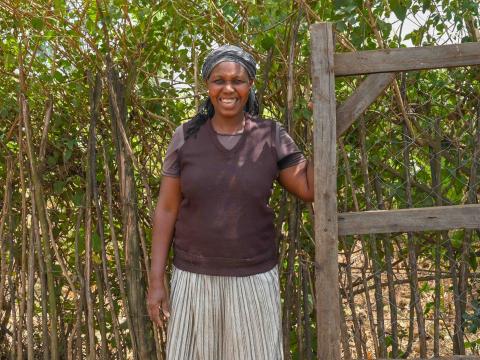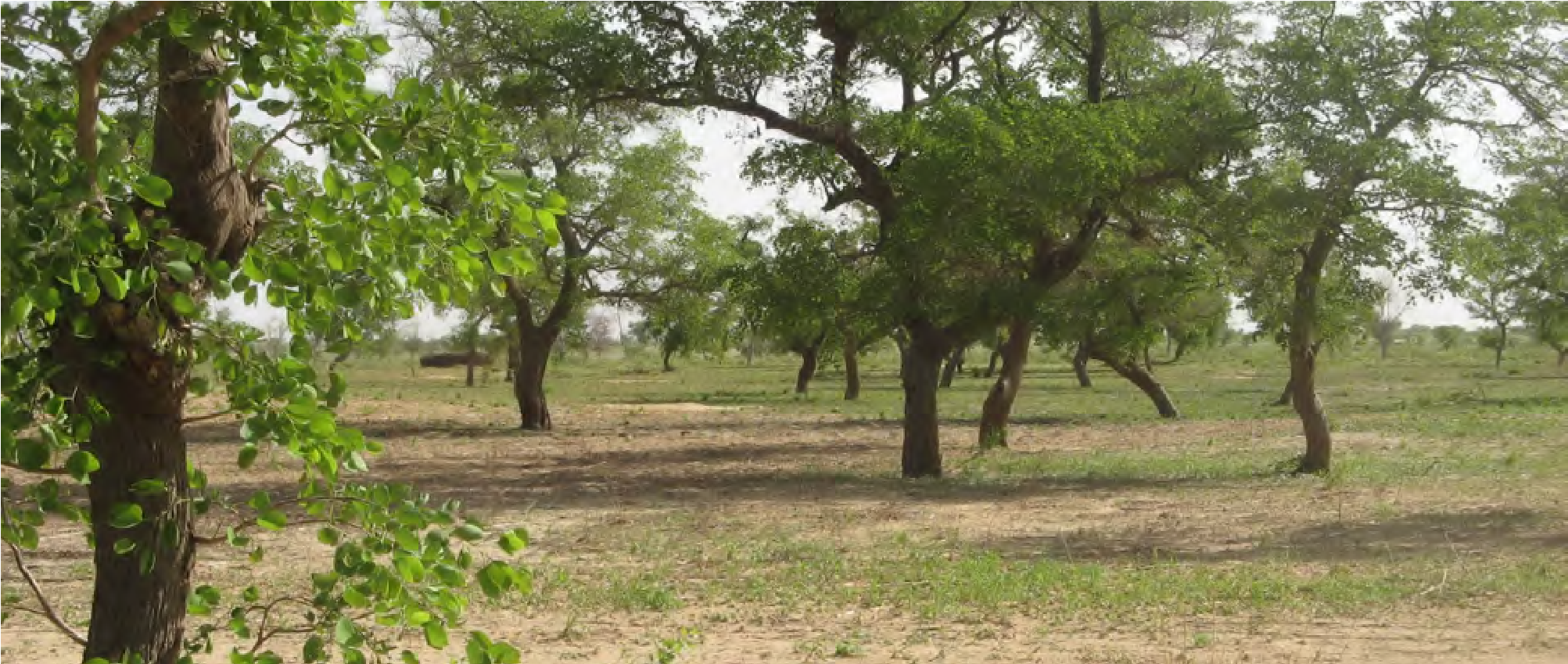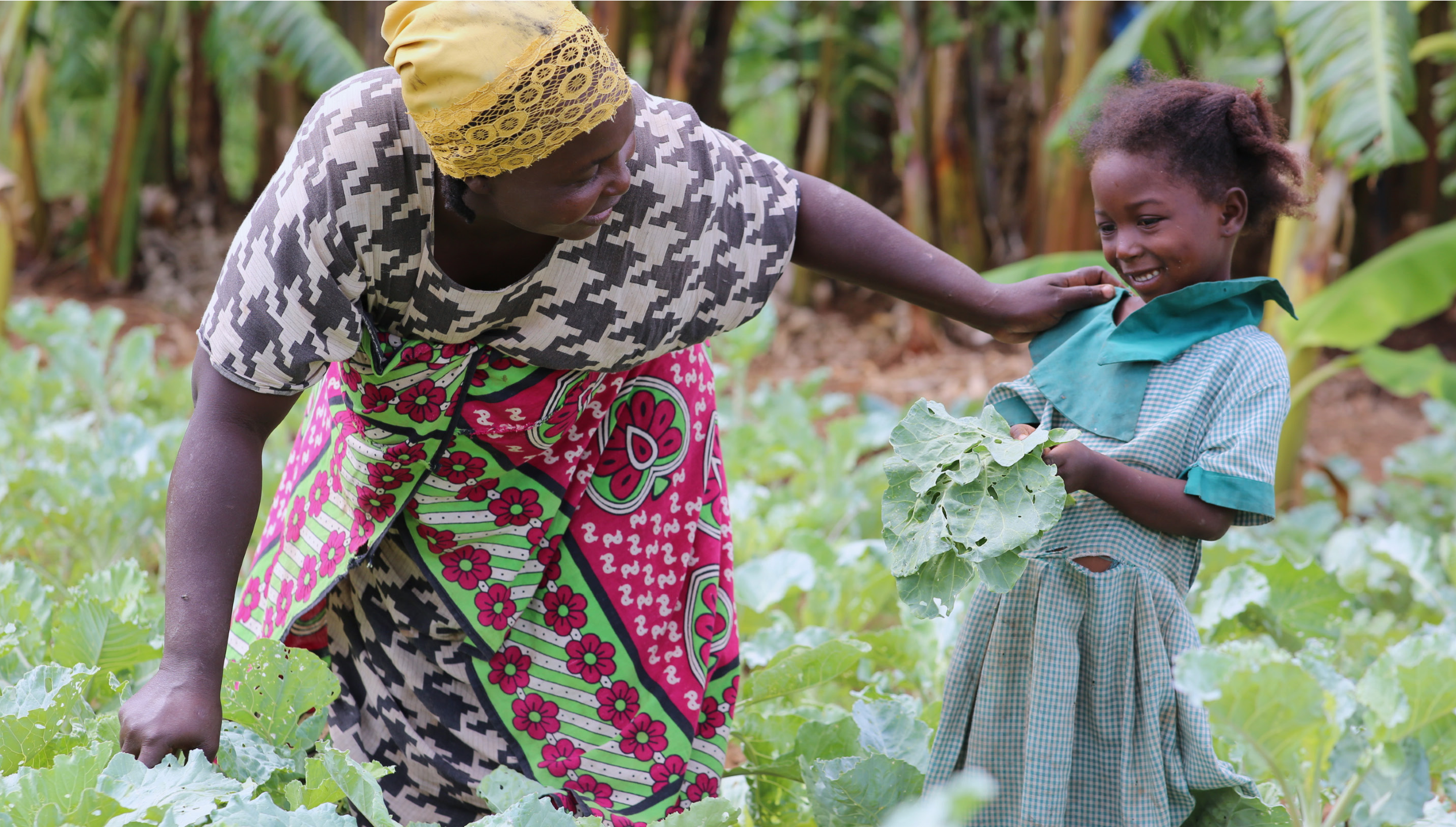Restoring ecosystems and building community resilience in West Africa

In recent decades, Africa has been confronted with increasingly extreme and complex environmental phenomena. These include land degradation and vulnerability to climate change, leading to severe drought and desertification.
In West Africa in particular, countries are experiencing long and intense periods of rainfall deficit that appear to be unprecedented. And land degradation is becoming an increasingly widespread phenomenon in the countries of the Sahel. But to build a sustainable future, land restoration and drought management are essential pillars for achieving the Sustainable Development Goals. That's why this year's World Environment Day focuses on restoring land, halting desertification and building resilience to drought.

In line with this year's theme, World Vision helps to improve the natural environment while minimising the negative impacts that can affect the well-being of children, their families and the communities in which they live. World Vision's Environmental Sustainability and Climate Action (ESCA) programmes focus on restoring ecosystems and building community resilience to climate change in all regions where World Vision works.
Since the 1980s, World Vision has helped smallholder farmers regenerate 1 million hectares of land through the practice of Farmer managed natural regeneration (FMNR). This has led to the United Nations Decade of Ecosystem Restoration awarding the Regreening Africa project, which is partly funded by WV and uses the practice of FMNR, the title of the United Nations Global Restoration Flagship Project in February 2024.
In addition, more than 3.3 million farmers in 33 countries are practising climate-smart agriculture thanks to training provided by World Vision.

Country spotlights
In 2023, World Vision also made a tangible contribution to farmer capacity building and land protection and restoration. Thousands of farmers benefited from training in improved sustainable agricultural practices. Over 24,000 farmers in Niger, over 3,000 in Mali and over 2,800 in Ghana have benefited from this training. ESCA's integrated programmes have also contributed to land protection and restoration. In Niger, more than 4,800 hectares have been protected and restored. In Senegal, 4,700 hectares have been restored.
To accelerate climate action in the region, the West Africa region launched the Farmer Managed Natural Regeneration (FMNR) scale-up business plan. This followed the adoption of the Regreening Communities (RGC) project model to guide the country offices implementation of ESCA, by addressing unsustainable farming practices, poor exploitation of natural resources and rapidly degrading landscapes. In so doing, 5658 hectares of land were protected and restored by the trained farmers in FY23. 11,517 individuals were trained in improved sustainable agricultural practices (including Climate Smart Agriculture (CSA), natural resource management (NRM), Farmer Managed Natural Regeneration (FMNR), sustainable fisheries and ecosystems restoration among other key initiatives). 118 solar-powered mechanised systems were installed in the West Africa region, further promoting the use of renewable energy in place of environmental harmful practices such as diesel-powered generators. In addition, all national offices in the West Africa region have appointed ESCA leads and established Green Teams to coordinate the implementation of WVI's partnership policy on ESCA.
The Wise Stewardship and Environmental Sustainability and Climate Action initiative for the West Africa region involved all national offices in the region in the development of comprehensive action plans to practice frugality and the highest level of environmental stewardship and climate action. The action plan covered all World Vision programmes and operations in the region.
ESCA prospects for 2030
The ESCA programme in the West Africa region aims to reach 10 million people (about 3.4 million children) with ESCA programmes so that children live in thriving environments and are resilient to environmental and climate shocks by 2030.